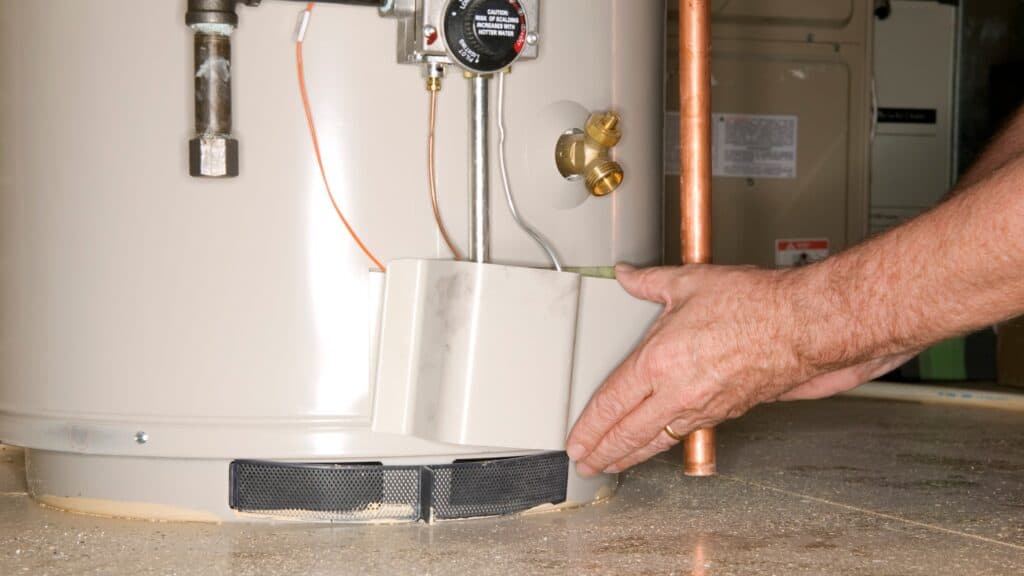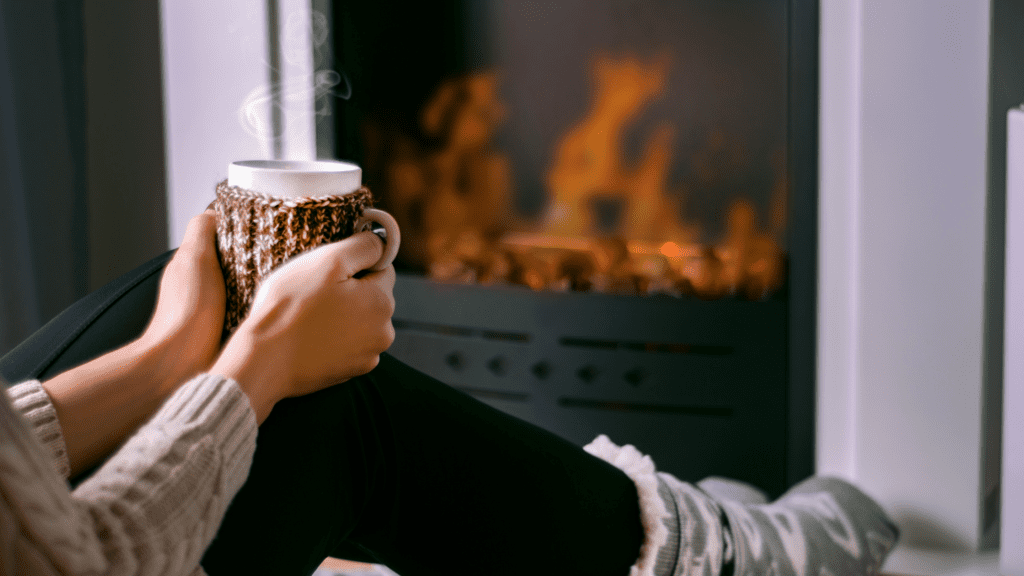This article will identify the best residential heating systems. Among the different types of heating systems such as fireplaces, diffusion systems, and other options, find out which is the best option.
Heating systems are special appliances that supply warmth to your home. Suitable heating systems will make a massive difference for your family and pets.
Different Types Of Heating Systems
1. Hot Air Diffusion System
A hot air diffusion system is a system that mainly consists of a boiler that produces and blows heated air through ducts. There are not many hot air diffusion systems. This system functions when hot air is dispersed throughout the house using special grilles in the various rooms. The term “ducted warm air” or “forced warm air distribution system” refers to this heating system. It can be powered by electricity, fuel oil, or natural gas.
How Does The Hot Air Diffusion System Work?
In a gas or oil-fired furnace, fuel is combined with air and burned. The heat from the flames is transmitted to the atmosphere through a metal heat exchanger. A fan forces the air to pass through the heat exchanger, after which it is made to circulate in the ducts below the heat exchanger. Through a flue, the combustion by-products are removed from the structure.
The thermostat, which controls when the system is on and off, is a crucial component of this kind of system. A forced air system typically has just one thermostat. The best gas boilers today are more than 90% efficient.
2. Boiler And Water System

How do radiator heating systems work? In this system, the boiler’s job is to generate heat so that water can be heated. Here, as opposed to the diffusion system, it is the water that generates heat as it circulates through the house’s radiators. The cool water is then warmed in the boiler.
Natural gas is generally the fuel choice for residential boilers. Traditional boilers use a pump to move hot water through pipes to the radiators instead of a ventilation system and ductwork.
Radiant floor heating is a term used to describe some systems that circulate water through pipes in the floor. Thermostats and valves are components of boiler control systems that manage the pressure in the system and the temperature of the water.
3. Heat Pumps (Electric Air Conditioners)
These are systems that make use of thermal energy present in nature. The two-way air conditioners are heat pumps. They serve as air conditioners in the summer by dispersing the heat from inside the house to the outside. The heat pump reverses its work in the winter, drawing heat from the house and releasing it into the chilly outside air with the aid of an electrical system.
Forcing air into your home using forced draught systems is how most heat pumps operate. A geothermal heat pump can heat or cool in any environment by exchanging heat with the ground, which has a relatively constant temperature.
Due to their lower cost and more straightforward heating systems installation, air-source heat pumps are significantly more common than ground-source heat pumps. However, ground-source heat pumps are far more environmentally friendly and energy-efficient home heating systems.
Ground source heat pumps need a circuit to be dug in the ground, typically in lengthy, deep trenches, whereas air source heat pumps can be installed similarly to a central air conditioning system.
The best choice is to connect the heat pump to a photovoltaic system, as doing so will generate the electricity needed to run the heat pump.
4. Ventilated Gas Stoves
Gas stoves that are wall-mounted, free-standing, or floor-mounted are all distinguished by the absence of pipes. These systems are only useful for heating a single room because of their limited thermal output. If you need to heat multiple rooms, leave the doors open between them or set up another heating system.
Gas stoves with “sealed combustion air” systems are the best option. Gas stove models can run on propane or natural gas. In terms of the cost of heating systems for homes, they are on the higher end considering that in addition to gas consumption, the electricity needed for ventilation must also be budgeted for.
Ventilated gas stoves are very safe since they come with safety valves and an environment analyzer that measures the amount of carbon dioxide in the air. The stoves automatically turn off in a dangerous situation.
5. Electric Stoves
Although electric stoves are cheap, your electricity bill will be significantly higher. Infrared and quartz typically convert electric current into heat directly, much like a toaster or an iron. Since a lot of electricity is required to produce the same amount of heat as natural gas, they might be more efficient. As with fan heaters, these electrical appliances are also suitable for heating a single room. The heat generated by an electrical heater is usually the most expensive form of heat. If you can do without it, it’s better!
6. Pellet Stoves
Pellet stoves may emit more pollution when it’s installed. They produce hot air that can be distributed to the other rooms of the house using specialized ductwork. Installation of the flue is simple, even in a dispersed location. The cost of pellets is low, and it is undoubtedly one of the cheapest fuels on the market.
7. Fireplaces – Wood Burning Heating Systems

Fireplaces, whether gas or wood, are decorative elements in a space. In general, fireplaces are not effective heat generators due to their design. Simple installation of an airtight glass door will increase a fireplace’s capacity to heat a room in a house.
8. Radiant Heating – Heat Pump Underfloor Heating Systems
How do radiant heating systems work? A system that circulates hot water in pipes under the floor makes up in-floor, wall, and ceiling radiant heating. A heat pump or a boiler heats water, which is then forced to flow through coils of cross-linked polyethylene pipes installed beneath the floor.
This technology takes advantage of heat radiation transfer. The surroundings become warmer because of the heated floor. Although expensive to install, it is tremendously efficient and very controlled. A qualified planner and installer are also needed. If you are a parquet enthusiast, avoid installing it.
What Is The Best Heating System?
There is no absolute best heating system. A lot depends on how big your home is, its degree of thermal insulation, and how much space you have available externally to store wood or pellets.
Gas stoves and thermo-ventilated stoves have low thermal efficiency and high consumption. The heating systems with better energy efficiency are radiant systems and heat pumps. We want to underline that modern structures have more significant heating systems installation costs.
Installing pellet burners in residences not serviced by a gas network is a suitable compromise. It would be best if you used them to efficiently manage your home’s heating and hot water production.
If you already have a gas boiler and want to save money on overhauling your heating systems completely, the ideal solution is to choose a condensing boiler. Compared to the traditional ones, this type has a higher efficiency with a reduction in gas consumption and environmental emissions.
